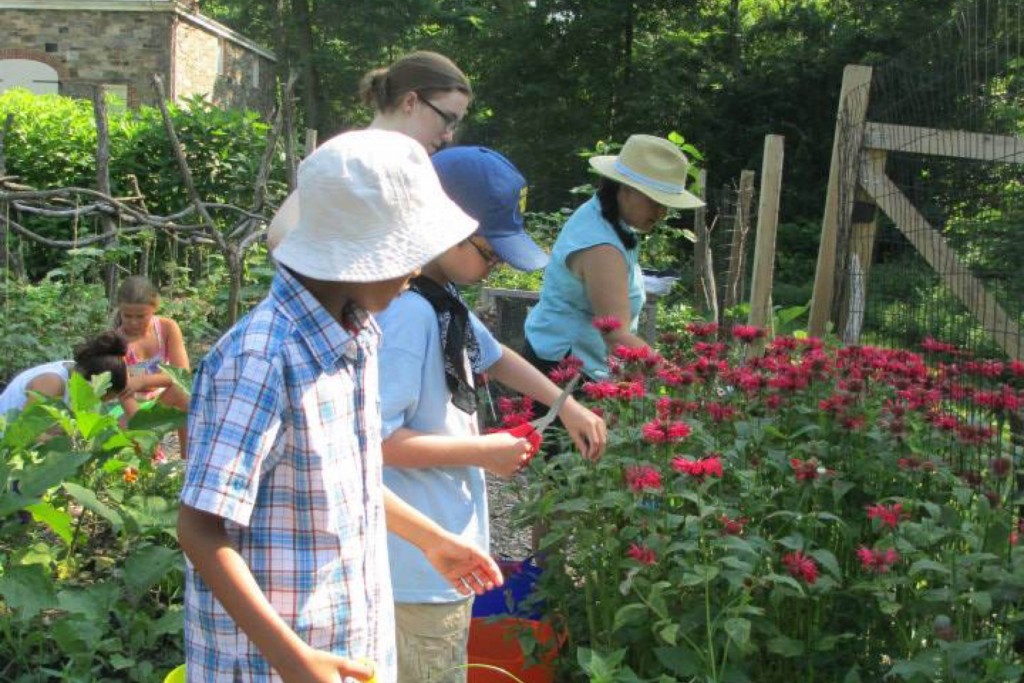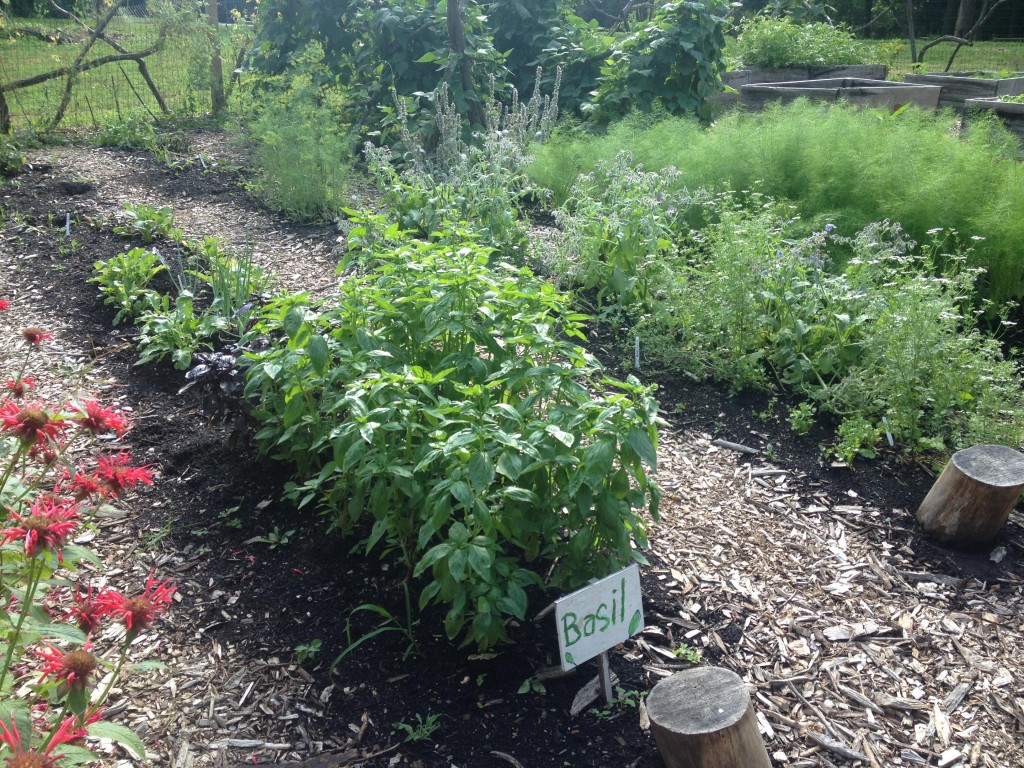Urban Farms
Growing More Than Food
By the year 2050, an estimated 70 percent of the global population will live in metropolitan areas. As cities grow beyond their limits, suburbs invade surrounding farmland, causing city dwellers to become more distanced and detached from the food they eat. However, this urban sprawl, as well as a desire for higher-quality, better-tasting, healthier food and a do-it-yourself attitude has encouraged a transformation in agricultural practices by moving food production from the country to the city, thus bringing people closer to their food supply. Urban agriculture, the implementation of a foodshed in or near a city, encompasses several forms of food production, distribution, and consumption, which include community gardens, farmers’ markets, and urban farms.
Urban farms grow far more than food; they offer unique opportunities for beautification and revitalization, community building, job creation, and educational outreach. Many farms provide jobs and income for immigrants who are experienced and skilled farmers. Prison farms create meaningful work for the incarcerated, and children’s gardens merge cultivation and education. Through educational outreach initiatives, the Bartow-Pell Mansion Museum (BPMM) is introducing a new generation of city dwellers to healthy eating and sustainable food production.
Eating and Educating
“My take has always been to inspire students, empowering them to do something with the outdoors in a small way, since many kids don’t necessarily get outside a lot” (Lauren Gill, BPMM Children’s Garden Manager). BPMM Children’s Garden, Pelham Bay Park, Bronx, NY, July 19, 2013, photograph courtesy of Lauren Gill.
Since 2012, under the direction of Lauren Gill, the BPMM Children’s Garden has made sustainable use of the grounds adjacent to the mid-nineteenth-century mansion. Now in its fourth year, the garden provides educational programs for students during the school year and is home to a three-week summer camp, BPMM Adventures. During their visits, students learn about ecology, sustainability, and nutrition while getting their hands dirty in the garden, planting seeds, watering plants, and harvesting produce.
However, children are not the only ones who tend to the garden. The plot could not survive without the help of educators, interns, and dedicated volunteers who do the heavy lifting, tilling, and composting. Under Gill’s guidance, staff and volunteers begin preparing the garden in March for the arrival of school groups in April. During their visits, students and campers taste the produce they are cultivating. Teachers often receive a share of produce, plants, or seeds to take back to school to enrich learning in the classroom and to promote continued discussion about farming, sustainability, nutrition, and the environment. The BPMM Adventures summer camp culminates in a pretend farmers’ market. Campers collect the summer’s bounty and “sell” the fruits and vegetables of their labor to friends and family.
Farm to Food
BPMM Children’s Garden, Pelham Bay Park, Bronx, NY, April 10, 2015, photograph courtesy of Lauren Gill.
Urban production is shrinking the gap between people and their food, as vegetables and fruits grown in the city do not have to travel far to reach their consumers. Urban farms produce fresher, healthier food for New Yorkers, but, unfortunately, access remains a challenge for many people. Food grown locally is often sold in markets at prices beyond the means of many residents.
BPMM is promoting food security by making the fresh produce grown in its garden accessible to a wide range of people. Since the garden was established, the museum has donated its harvest to Bronx food pantries, including the Women’s Housing and Economic Development Corporation and St. Peter’s Episcopal Church. During harvest season, the food pantries receive fresh produce each week. According to Gill, “Children visiting our garden learn that some of the produce we produce will be provided to people in need. When we harvest vegetables and fruits, we talk about the food pantry and let children know that their labor will provide some food for our neighbors.”
Farming for the Future
BPMM Children’s Garden, Pelham Bay Park, Bronx, NY, July 19, 2013, photograph courtesy of Lauren Gill.
Urban farms grow food close to the consumer. Knowledge and understanding of where and how food is produced are key in driving the food justice movement. By introducing young people to the issues of farming and local food production, the BPMM Children’s Garden helps to create a healthier, more sustainable future for food practices within the city. -A.C.


